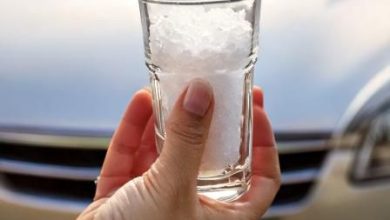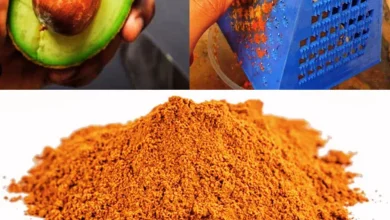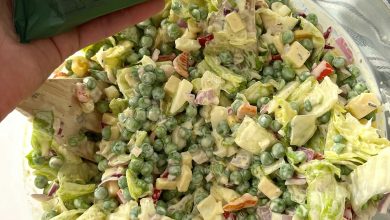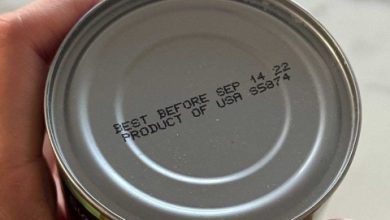I didn’t realize you could do this.
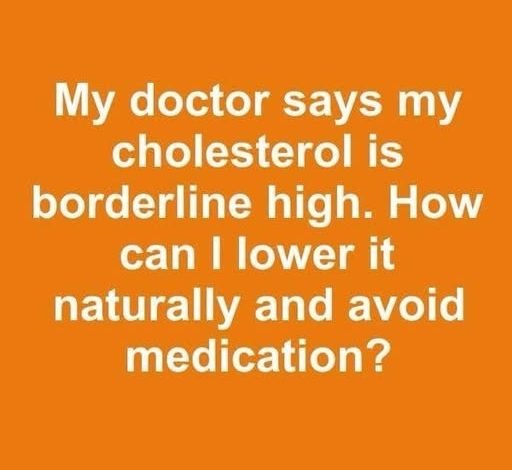
It’s definitely a good idea to explore natural ways to manage cholesterol levels, especially if your doctor has indicated they are just a bit high. Many people are able to make positive changes through adjustments to their daily habits. Let’s delve deeper into how you can naturally lower your cholesterol and potentially avoid the need for medication.
Understanding the Importance of Natural Approaches
When you receive advice that your cholesterol is “borderline high,” it serves as an important signal to take proactive steps. Fortunately, there are numerous natural strategies you can employ, primarily focusing on what you eat, how active you are, and your overall lifestyle. These approaches aim to gently guide your body towards healthier cholesterol levels without the immediate intervention of prescription drugs. As the original text notes, “Fortunately, you can lower cholesterol naturally through diet, exercise, and lifestyle changes.” This path emphasizes empowering yourself through informed choices about your well-being.
1. Embracing a Heart-Healthy Dietary Pattern
The food we consume has a profound impact on our cholesterol levels. By making conscious and informed choices about what we eat, we can actively work to reduce the “bad” cholesterol, known as LDL (low-density lipoprotein), and encourage the production of “good” cholesterol, or HDL (high-density lipoprotein).
✅ Key Foods to Incorporate:
- Oats and Whole Grains: These are powerhouses of soluble fiber, a type of fiber that plays a crucial role in lowering LDL cholesterol. Think of it like a sponge in your digestive system, binding to cholesterol and helping your body eliminate it. Starting your day with a warm bowl of oatmeal or choosing whole-grain bread for your sandwiches are simple yet effective swaps. As the original text highlights, they are “Rich in fiber, which helps lower LDL. Start your day with oatmeal or whole-grain bread.“
- Fruits and Vegetables: Bursting with antioxidants and fiber, these natural wonders aid in removing excess cholesterol from the body. A colorful array of apples, juicy berries, vibrant oranges, and leafy green vegetables should become staples in your daily meals and snacks. They contribute not only to cholesterol management but also to overall health and well-being.
- Nuts and Seeds: Almonds, walnuts, chia seeds, and flaxseeds are packed with healthy unsaturated fats and fiber, both of which contribute to lowering LDL cholesterol. Enjoy a handful of nuts as a snack or sprinkle seeds on your yogurt or salads for a nutritional boost.
- Fatty Fish: Varieties like salmon, tuna, and mackerel are excellent sources of omega-3 fatty acids. These beneficial fats have been shown to improve heart health in various ways, including positively influencing cholesterol levels.
- Beans and Lentils: These plant-based protein sources are not only nutritious but also help in reducing cholesterol levels. Additionally, their high fiber content promotes a feeling of fullness, which can be helpful in managing weight.
- Avocados: This creamy fruit is rich in heart-healthy monounsaturated fats. These fats can help raise HDL cholesterol while simultaneously lowering LDL cholesterol, contributing to a healthier lipid profile.
- Olive Oil: When used as a replacement for less healthy fats like butter and margarine, olive oil can be a valuable tool in reducing LDL cholesterol. Its monounsaturated fats offer significant cardiovascular benefits.
❌ Foods to Be Mindful Of (and Potentially Limit):
- Fried and Processed Foods: These often contain trans fats, which are particularly detrimental to cholesterol levels. They tend to raise LDL and lower HDL, increasing the risk of heart disease. Examples include french fries, potato chips, and many types of fast food.
- Sugary Drinks and Sweets: Excessive sugar intake can lead to elevated triglycerides, another type of fat in the blood, and increase the risk of heart disease. Limiting sugary sodas, juices, and desserts is important for overall metabolic health.
- Red and Processed Meats: Foods like bacon, sausages, and fatty cuts of beef are often high in saturated fat, which can contribute to increased levels of “bad” cholesterol. Opting for leaner protein sources is generally recommended.
- Full-Fat Dairy Products: Products like whole milk, cheese, and butter contain saturated fats. Switching to lower-fat or plant-based alternatives such as almond or oat milk can be a beneficial change.
- Butter and Margarine: As mentioned earlier, replacing these with healthier options like olive oil or avocado oil can positively impact your cholesterol levels.
2. The Power of Regular Exercise
Engaging in regular physical activity is another cornerstone of naturally lowering cholesterol. Exercise has a wonderful dual effect: it helps to boost your “good” HDL cholesterol and lower your “bad” LDL cholesterol. Aiming for a consistent exercise routine is key. The original text suggests aiming for at least:
- 30 minutes of moderate exercise, 5 days a week OR
- 20 minutes of vigorous exercise, 3 times a week
💪 Effective Exercises for Cholesterol Management:
- Brisk Walking or Jogging: These are accessible and simple ways to get your heart pumping and improve your cardiovascular health. As the text notes, it’s “A simple way to improve heart health.“
- Cycling: A low-impact exercise that’s great for building endurance and improving heart health.
- Swimming: An excellent full-body workout that is gentle on the joints while effectively burning calories and strengthening the heart.
- Strength Training: Incorporating weightlifting into your routine helps build muscle mass, which can indirectly contribute to better cholesterol levels and overall metabolism.
- Yoga and Stretching: While not directly lowering cholesterol in the same way aerobic exercise does, yoga and stretching can help reduce stress, which, as we’ll discuss later, can also impact cholesterol levels.
Remember that even small amounts of movement throughout your day can contribute positively. Taking the stairs instead of the elevator, going for a walk after meals, or even dancing to your favorite music can make a difference.
3. The Benefits of Losing Excess Weight
If you are carrying extra weight, even a modest reduction can have a significant impact on your cholesterol levels. The original text points out that “Even losing 5-10% of your body weight can make a big difference in lowering cholesterol.” This is because excess weight can often be associated with higher LDL and lower HDL levels.
⚖️ Strategies for Healthy Weight Management:
- Focus on whole, unprocessed foods: These tend to be lower in calories and higher in nutrients, supporting healthy weight loss.
- Practice portion control: Being mindful of how much you’re eating can help you consume fewer calories. Try using smaller plates and bowls.
- Stay hydrated: Drinking plenty of water can help you feel full and can sometimes replace the urge to snack on unhealthy options.
- Incorporate regular physical activity: As discussed earlier, exercise is crucial not only for cholesterol but also for weight management.
4. The Importance of Fiber Intake
Fiber, especially soluble fiber, plays a vital role in managing cholesterol. It works by binding to cholesterol in your digestive system, preventing its absorption and helping your body to eliminate it. The original text emphasizes that “Fiber binds to cholesterol in the digestive system and removes it from the body.“
🍎 Excellent Sources of Fiber:
- Oats, barley, and brown rice: These grains are rich in soluble fiber.
- Lentils, beans, and chickpeas: These legumes are packed with both soluble and insoluble fiber.
- Fruits like apples, pears, and bananas: The skin of these fruits often contains a good amount of fiber.
- Vegetables like carrots, broccoli, and spinach: A diverse range of vegetables contributes to your daily fiber intake.
- Nuts and seeds: Besides healthy fats, they also provide a good source of fiber.
Aiming for at least 25-30 grams of fiber per day is a good target for cholesterol reduction. Gradually increasing your fiber intake is recommended to avoid digestive discomfort.
5. The Role of Hydration and Green Tea
Staying adequately hydrated is essential for overall health, and it can also play a role in managing cholesterol. The original text notes that “Water helps flush out excess fats and cholesterol from the body.” While water’s direct impact on cholesterol levels might be subtle, it supports overall bodily functions, including waste elimination.
Green tea, on the other hand, contains compounds called catechins, which have been suggested to help lower LDL cholesterol naturally. Incorporating a few cups of green tea into your daily routine could offer additional benefits.
6. Managing Stress Levels
Chronic stress can have a negative impact on various aspects of your health, including cholesterol levels. The original text explains that “High stress can increase cholesterol levels by triggering unhealthy eating habits and hormone imbalances.” When we are stressed, we might be more likely to reach for comfort foods that are high in unhealthy fats and sugars, which can negatively affect our lipid profile.
🧘 Strategies for Stress Reduction:
- Practice deep breathing and meditation: These techniques can help calm your nervous system and reduce stress hormones.
- Prioritize sleep: Aim for 7-9 hours of quality sleep each night, as sleep deprivation can contribute to stress.
- Spend time in nature and sunlight: Exposure to nature has been shown to have stress-reducing effects.
- Listen to relaxing music: Music can have a soothing effect on the mind and body.
- Engage in enjoyable activities: Make time for hobbies and activities you find relaxing and fun, such as “reading or gardening.”
By actively working to reduce stress in your life, you’re not only improving your mental and emotional well-being but also supporting better heart health.
7. The Impact of Smoking and Alcohol
Lifestyle choices like smoking and alcohol consumption can significantly affect cholesterol levels. The original text clearly states that “Smoking lowers HDL and increases LDL. Quitting can quickly improve cholesterol levels.” The chemicals in cigarette smoke damage blood vessels and negatively impact cholesterol. Quitting smoking is one of the most impactful steps you can take for your cardiovascular health.
Regarding alcohol, moderation is key. The recommendation is “one drink per day for women, two for men.” Excessive alcohol consumption can lead to increased triglycerides and liver fat, which can indirectly affect cholesterol levels.
8. Considering Natural Supplements (with Caution)
While the primary focus should be on diet and lifestyle, some natural supplements may offer additional support in lowering cholesterol. The original text mentions a few examples:
- Omega-3 Fish Oil: May help reduce LDL cholesterol and offers other heart-health benefits.
- Psyllium Husk: A fiber supplement that can aid in lowering cholesterol by binding to it in the digestive system.
- Garlic Extract: Some studies suggest it may have a modest effect on reducing LDL levels.
- Plant Sterols: Found in some fortified foods, these substances can help block the absorption of cholesterol in the gut.
It is crucial to remember the advice: “Always consult with a doctor before taking supplements.” Natural doesn’t always mean without potential side effects or interactions with other medications you might be taking. Your doctor can provide personalized guidance based on your individual health needs.
Staying Consistent for Long-Term Heart Health
Lowering cholesterol naturally is a journey that requires patience and consistency. As the original text wisely concludes, “Lowering cholesterol naturally takes time, but these lifestyle changes can make a huge difference. Start by eating healthier, exercising more, reducing stress, and making small daily improvements.” By making gradual but sustainable changes to your diet, exercise routine, and overall lifestyle, you can work towards achieving healthier cholesterol levels and potentially avoid the need for medication. Remember that these efforts contribute not just to managing cholesterol but to your overall well-being and can help you “keep your heart healthy for life!“
